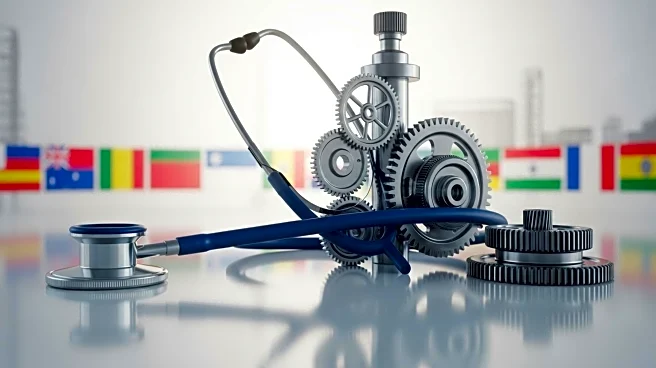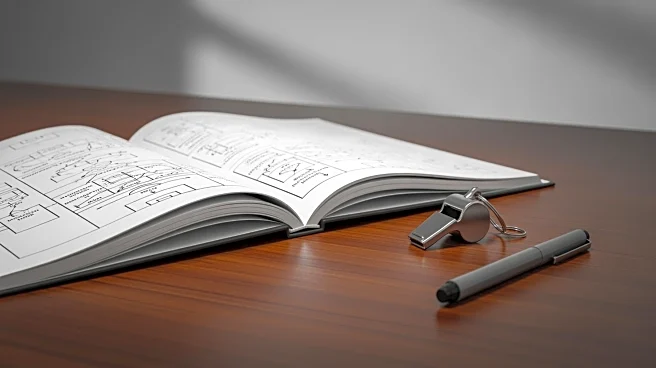What's Happening?
The United States has commenced investigations into the importation of medical equipment and industrial machinery, potentially leading to new tariffs. These probes, initiated on September 2, are conducted under Section 232 of the Trade Expansion Act of 1962, which allows for tariffs based on national security concerns. The medical equipment investigation covers personal protective equipment (PPE) such as surgical masks, gloves, and gowns, as well as medical devices like wheelchairs and pacemakers. The industrial machinery probe includes robots, milling machines, and specialty metalworking equipment. The Commerce Department is currently seeking public comments on these matters. These investigations follow recent tariffs imposed by President Trump on steel, aluminum, and automobiles, and are separate from tariffs on imports from specific countries.
Why It's Important?
These investigations could significantly impact U.S. industries by potentially increasing costs for imported medical and industrial equipment. If new tariffs are imposed, domestic manufacturers may benefit from reduced competition, while healthcare providers and industrial sectors could face higher prices. The move aligns with President Trump's broader trade strategy, which has included imposing tariffs to protect national security and domestic industries. However, it may also lead to strained trade relations with key partners, affecting international supply chains and economic dynamics. Stakeholders in the healthcare and manufacturing sectors are closely monitoring the situation, as the outcome could influence operational costs and market competitiveness.
What's Next?
The Commerce Department's call for public comments suggests a period of review and analysis before any tariffs are finalized. Stakeholders, including industry leaders and trade partners, are expected to provide input on the potential impact of these tariffs. The process could take several months, with possible outcomes ranging from the imposition of new tariffs to alternative measures aimed at safeguarding national security. The administration's decision will likely consider both economic implications and national security concerns, potentially leading to further adjustments in trade policy.
Beyond the Headlines
The investigations highlight ongoing tensions in U.S. trade policy, particularly regarding the balance between national security and economic interests. The focus on medical gear and industrial machinery underscores the importance of these sectors in national security considerations. Long-term implications may include shifts in manufacturing strategies, increased domestic production, and changes in international trade relationships. Ethical considerations also arise, as tariffs on medical equipment could affect access to essential healthcare supplies.









